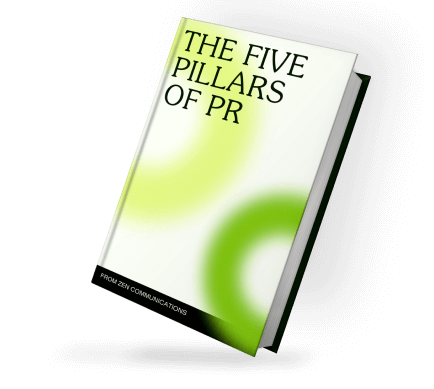Free e-book download click to download the first two chapters of ‘The Five Pillars of PR’
Not all of us here at Zen are staunch football fans, so some of us were oblivious when the sporting press went crazy after an apostrophe was incorrectly inserted into French midfielder Steven Nzonzi’s surname (N’zonzi) upon his signing for Roma. But, just like the enraged football journalists, we’ve all have had moments of total despair when we’ve come across spelling mistakes and grammar offences – and boy, have we seen plenty!
Passionate about words and language, we’re forever regaling each other with tales of absolute terror (you know those moments that get the hairs on the back of your neck standing up in complete disbelief…?) – and wanted to share with you some of our top peeves, beginning of course with the misused apostrophe…
1.Incorrect Apostrophes
Incorrect apostrophes are ridiculously common and when you’re wordsmiths and grammar geeks like us, we spot them all the time. One of the most common (and frustrating) error when it comes to apostrophes is the addition of one where it's not needed (as in the case of Nzonzi)... To be clear... you do not need to use an apostrophe in nouns that are plural - such as DVDs, HGVs, or MOTs (we bet you've seen an apostrophe in that one more than once!) And you certainly don't need one in verbs - such as keeps, sees, or needs. Apostrophes denote possession ('Felicity's grammar was awesome') or to denote a missing letter ('and she wasn't called a Language Nazi for nothing)...
2. There, They’re and Their
Wow, this one deserves to be number one . There is a new building being built over there. (Did you spot the deliberation?) There can be used to describe something that isn’t here. It’s also a pronoun used in phrases such as there are or there is. 'There is' can be shortened by removing the ‘i’ in ‘is’ and adding an apostrophe where it was (to show that a letter has been omitted - see above). There’s hoping it makes sense!
They’re – this is the same as above because a letter has been removed and apostrophe put in its place. The letter removed is ‘a’ because it’s the shortened version of they are
3.‘I could care less’
I could care less means that you do care, and this popular saying is actually used to describe how someone could not care less than they already don’t – if that makes sense?
4.Unnecessary Prepositions
A preposition usually stands in front of a noun to relate it grammatically or semantically to some other constituent of a sentence. The abbreviation is prep – so an easy way to think of it is to prepare for the noun. An example of an unnecessary preposition is ‘The winner was awarded with a gold medal.’
5.‘I seen’
Seen is a past tense word and indicates that the action has been completed. It should only be used with a ‘helper’ word, something that enables it to become an action that’s done, for example, ‘I have seen’. Present tense: I see the birds. Past tense: I saw the birds. Perfect tense: I have seen the birds.
6.Irregardless
Regardless means ‘regard less,’ ‘without regard,’ or despite something for example, ‘Shaun drank fizzy drinks a lot, regardless of the consequences.’ The prefixir– (i-r) is a negative prefix, so if you add the prefix ir to a word that’s already negative like regardless, you’re making a double-negative word that means ‘without without regard.’
7.Could of, Could’ve
This is one that sounds like a nail down a chalk board to us – but it’s a mistake that’s easily avoided. If we want to see how the word ‘could’ve’ is spelt in its long form, we replace the apostrophe with a ‘ha’ to make it ‘could have’. And, this little rule also applies to ‘should’ve’ too!
8.Alot
A lot is not one word together – think about it this way, we don’t say atomato or aphone…
9.Supposably vs. Supposedly
Urban dictionaries have claimed that supposably is an actual word and it’s yet to be decided, but its definition means ‘according to what can be imagined or conceived’. For example, ‘What could supposably go wrong?’ is often the context in which it’s used, but for simplicity, try replacing this word with ‘possibly’ or ‘conceivably’. Supposedly on the other hand, means according to what is believed, rumoured or reported, for example ‘five centuries ago, the world was supposedly (It was believed the world was flat)
10.You’re and Your
This is an easy mistake to make if it’s something that’s not been drummed into your head ... Your is describing possession ('Your work was really appreciated). And, you’re is ‘you are’ shortened, so instead of 'I hope you are well', we use, 'I hope you’re well')


Free Download